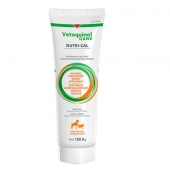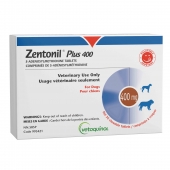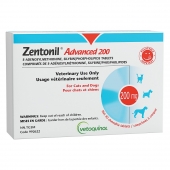Annual exams or a yearly routine medical examination (or more frequent if you have a young or senior pet) is the best way to keep track of your pet’s overall wellness, detect early symptoms of disease or underlying conditions, and to take the necessary steps to help them enjoy a healthy, happy life. Here’s what usually takes places.
Questions about your pet’s history
Either during the exam or over the phone, your veterinarian will ask you questions about your pet’s diet, physical activity, eating and drinking habits, environment and behaviour, as well as if they seem to be urinating and moving their bowels normally. This valuable information, combined with the results of a physical examination, will provide your veterinarian with the necessary insight to make recommendations based on your pet’s unique lifestyle.
Pet physical examination
A physical examination involves observing your pet’s general appearance, taking a closer look at different parts of the body and palpating specific areas.
Your veterinarian will observe how your dog or your cat walks and stands, how they react to movement and sounds, and if their body weight seems appropriate. They’ll examine more closely your pet’s hair coat to make sure it’s shiny, smooth and full, that the skin is free of lumps or bumps, and that the muscles seem healthy. Your pet’s nose should be moist and clean. Your veterinarian will check your pet’s eyes, ears, teeth and mouth for abnormalities such as redness, dryness, or discharge.
A stethoscope will allow your veterinarian to auscultate your pet’s heart and lungs to notice any unusual sounds, such as skipped or extra heart beats or breathing issues.
Your veterinarian will palpate your pet to check their pulse, their lymph nodes for signs of swelling and their legs to detect possible muscle or nerve problems. By feeling the abdomen, they’ll evaluate if internal organs such as the bladder, kidneys, liver and intestines appear normal and if your pet seems to be in pain or uncomfortable.
If your veterinarian notices anything unusual, they may recommend additional tests such as X-rays, blood tests or a urine or feces analysis to gather more information.
Vaccines and parasite protection
Your veterinarian will recommend and administer vaccines based on your pet’s lifestyle and location. The Canadian Veterinary Medical Association recommends core vaccines against distemper, parvovirus, and hepatitis for all dogs, and against panleukopenia, viral rhinotracheitis, and calicivirus for all cats. Both dogs and cats should be vaccinated against rabies. These are serious or highly contagious illnesses against which all pets should be protected, even if the risk seems small.
Other non-core vaccines may be relevant based on your pet’s lifestyle. For example, if your cat is allowed outside, they should be vaccinated against the feline leukemia virus. Where you live also matters. Eastern Canada has seen a surge in leptospirosis cases over the past two decades, so it’s safer for dogs with an outdoor lifestyle in this area to be vaccinated.
Your veterinarian will also discuss parasite prevention options with you. Taking into account your pet’s age, health and lifestyle, your geographical location and the presence of any vulnerable family members, they’ll recommend a parasite protection program against fleas, ticks, mites and worms found in your area. Make sure to inform your veterinarian of any changes in your pet’s routine which may influence their recommendation, for example if your indoor cat is now allowed outside.
Recommendations for your pet’s well-being
All the information above provides your veterinarian with the necessary data to make recommendations to keep your pet happy and healthy. For example, they may suggest switching to a weight control diet, increasing your pet’s level of physical activity or undergoing treatment to course-correct a disease still in its early stages. Follow their advice closely, and don’t forget to ask any questions you feel could help you take better care of your furry friend.






